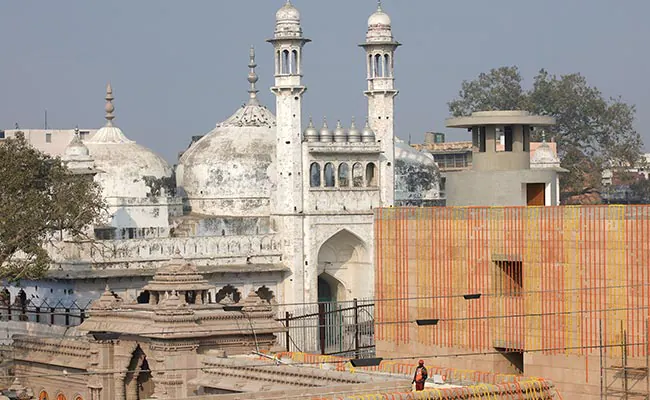The report, in three folders, was submitted in a sealed cover by the filming team. A chip with the videos and photographs of the filming was also handed over to the court.

New Delhi: On a day when the report of the filming the Gyanvapi mosque was submitted at the Varanasi court, the Supreme Court stalled all proceedings at the lower courts and said it will hear the case on Friday. This comes on a day when rumours on Hindu idols and ‘Seshnag-like’ structures being found surfaced on media reports.
The report, in three folders, was submitted in a sealed cover by the filming team. A chip with the videos and photographs of the filming was also handed over to the court.
The Supreme Court’s orders not to hear the case came after the lawyers of the Hindu side requested to stay the hearing on Thursday. Hindu side’s lawyer, advocate Vishnu Jain said, “Two proceedings cannot go on simultaneously. I had given an undertaking that since Hari Shankar Jain is unwell and will recover by tomorrow (Friday), the matter may be adjourned till tomorrow. Let the Supreme Court decide and we’ll proceed accordingly.”
Jain also submitted that the petitioners shall not press for a hearing before the Varanasi civil court on Thursday. The Hindu petitioners have also moved a fresh plea for demolishing a wall around a site where a “Shivling” was reportedly found.
“We direct that the trial court to strictly act in terms of the arrangement and to desist from taking further action in the suit,” directed the Supreme Court bench of justices Surya Kant and P S Narasimha.
Earlier, the Supreme Court had said that the area where the Shivling was found would be protected without hampering the entry of Muslims for namaz.
A group of five women had filed a petition before the court seeking right to worship without any hindrance at the Kashi-Vishwanath-Gyanvapi Mosque complex. The petitioners had sought for a year-long access to pray at a Hindu shrine located within the Gyanvapi Mosque complex in Varanasi as the contested site is opened for prayers once a year. Hearing the petition, the court had ordered an inspection in April. The petitioners had filed their petition under Article 25 of the Constitution requesting protection of their right to religion.
